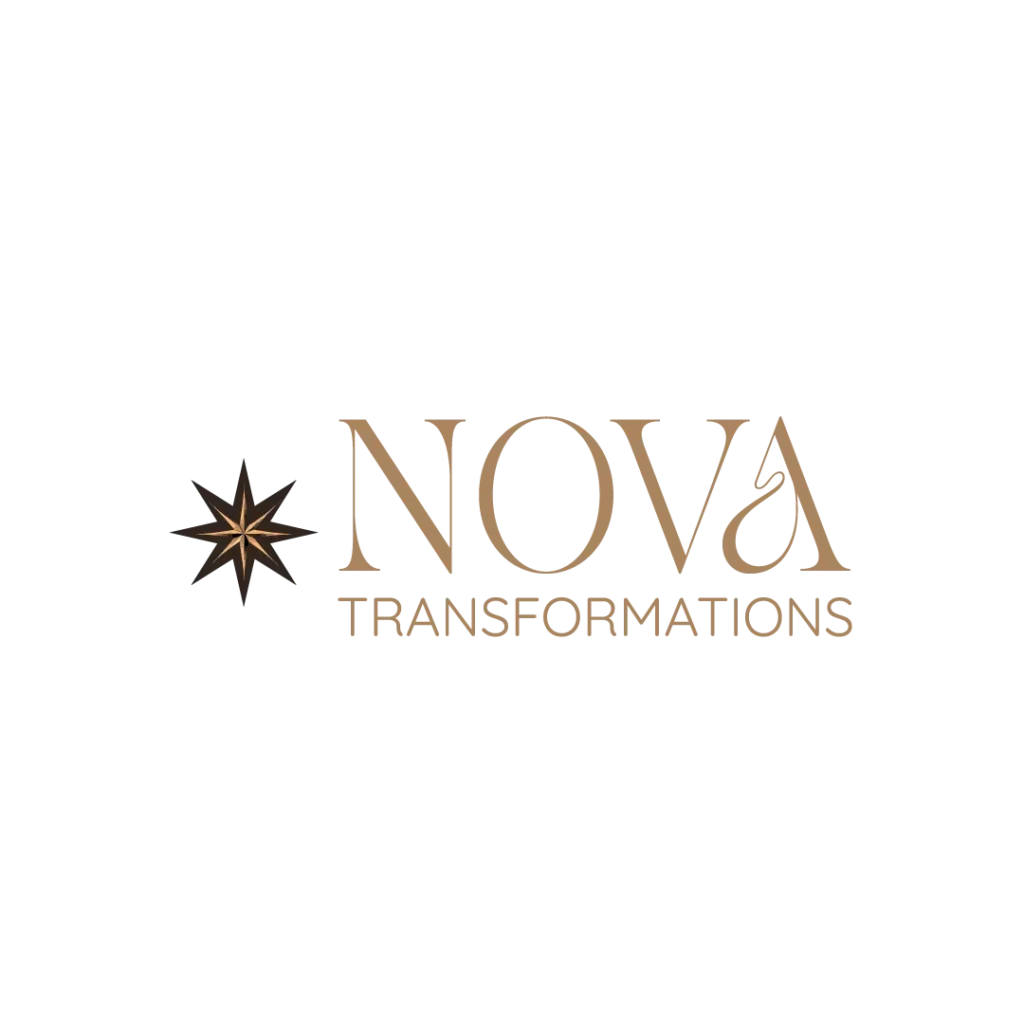Understanding Dual Diagnosis
Definition and Complexity
A dual diagnosis occurs when an individual experiences both a mental disorder and a substance use disorder (SUD), which is an example of comorbidity. This condition is notably prevalent among teenagers, individuals with serious mental illnesses, and those struggling with specific mental health disorders MedlinePlus.
The relationship between mental disorders and substance use disorders is intricate. Symptoms often overlap, making accurate diagnosis essential for effective treatment. For instance, someone with a depression diagnosis may turn to substances like alcohol or drugs for temporary relief. Conversely, substance use can exacerbate existing mental health conditions, leading to increased difficulty in management.
Common Co-Occurring Disorders
Common co-occurring disorders involve a variety of mental health problems that frequently coexist with substance use disorders. Understanding these connections is crucial for ensuring comprehensive treatment. Below is a table detailing some prevalent co-occurring disorders associated with substance use:
| Mental Disorder | Description |
|---|---|
| Depression | Characterized by persistent feelings of sadness and loss of interest, depression often leads to substance use as individuals seek relief from emotional pain. |
| Anxiety Disorders | Conditions such as generalized anxiety or panic disorder can lead to self-medication through substances, creating a cycle of worsening symptoms. |
| Bipolar Disorder | Individuals may misuse substances during manic or depressive episodes, complicating treatment and recovery. |
| Schizophrenia | This disorder is linked to high smoking rates, as patients might use nicotine to cope with symptoms or side effects of medications NCBI Bookshelf. |
| Post-Traumatic Stress Disorder (PTSD) | After experiencing trauma, individuals may turn to drugs or alcohol as a coping mechanism to manage distressing symptoms. |
Recognizing these co-occurring disorders is vital for an accurate diagnosis and tailored treatment plans. If you or a loved one is facing challenges related to dual diagnosis, seeking professional help and exploring options such as dual diagnosis treatment at facilities like Nova Transformations can provide the integrated support needed for recovery.
Challenges in Dual Diagnosis Treatment
Dual diagnosis treatment presents unique challenges that can impede recovery. Understanding these obstacles is essential for you or your loved one to make informed choices about addiction care.
Limited Treatment Options
Individuals with dual diagnoses often face limited treatment options. Those struggling with both mental health disorders and substance use problems typically have poorer outcomes compared to individuals with a single disorder. This may be due to undiagnosed symptoms and inadequate insurance coverage. Many treatment facilities have separate systems for mental health and substance use disorders, making it difficult for patients to find comprehensive care that addresses both issues (Recovery Centers of America).
When seeking help, you may discover that many programs are not equipped to handle dual diagnoses effectively, which can lead to increased challenges during recovery.
| Treatment Type | Availability |
|---|---|
| Integrated Programs | Limited |
| Separate Mental Health Programs | Common |
| Substance Use Treatment Facilities | Common |
| Dual Diagnosis Facilities | Rare |
Stigma and Discrimination
Stigma surrounding mental health and substance use can create substantial barriers to treatment. Individuals may experience discrimination, leading to feelings of isolation and shame. This stigma can discourage you from seeking help or sharing your struggles with others. Additionally, patients with dual diagnoses may face misdiagnosis or improper treatment. They may be rejected by both alcoholism programs and mental health programs, with many falling through the cracks in the healthcare system (PMC).
It is crucial to understand that seeking help is a sign of strength, and breaking the stigma can facilitate access to essential support.
Lack of Proper Resources
Access to sufficient resources for comprehensive treatment is often a significant challenge for those with co-occurring disorders. Patients with dual diagnoses typically require more services than those dealing with a single disorder. This heightened need correlates with increased rates of disability, longer hospitalizations, and higher instances of homelessness and legal issues (PMC).
A lack of funding and proper treatment facilities can greatly impact the quality of care available. To navigate these obstacles effectively, you should consider comprehensive programs like those offered by Nova Transformations, which are designed to address both addiction and mental health needs.
While dual diagnosis treatment can be complicated, understanding these challenges is a critical first step in securing effective care. Finding an integrated treatment approach tailored to your unique situation can make a significant difference in your recovery journey. For more information on dual diagnosis care, explore our resources on dual diagnosis treatment and related therapy options.
Importance of Integrated Treatment
Integrated treatment is crucial when addressing dual diagnosis, as it combines the management of mental health and substance use disorders in one cohesive approach. This ensures that both conditions are treated simultaneously, leading to more effective outcomes.
Addressing Mental Health and Substance Use
Dual diagnosis treatment involves addressing both mental health conditions and substance use disorders concurrently. This can include a variety of interventions such as behavioral therapy, medication, support groups, or in-patient care (Cleveland Clinic). An integrated strategy that treats both mental health problems and substance use disorders at the same time is often necessary for effective treatment, offering comprehensive care for improved results.
| Treatment Component | Description |
|---|---|
| Behavioral Therapy | Focuses on changing negative thought patterns and behaviors associated with addiction and mental health conditions. |
| Medication Management | Involves prescribing medications that address both mental health and substance use issues. |
| Support Groups | Provides peer support and shared experiences to help sustain recovery. |
Effective treatment requires coordination among different treatment modalities to deliver the best chance for positive outcomes. Integrated treatment methods have shown to be effective and convenient, often resulting in lower costs and improved patient compliance (PubMed Central).
Coordinated Treatment Approaches
Coordinating care between various healthcare providers is essential for the most favorable outcomes in dual diagnosis treatment. A synergistic approach ensures that all aspects of a patient’s health are managed effectively. Patients benefit from having a unified treatment plan that addresses both their mental health and substance use disorders, allowing for a more targeted and supportive approach.
This integrated model not only supports individual recovery but enhances the overall effectiveness of treatment programs. Whether you opt for inpatient care or outpatient programs, ensuring that your treatment is coordinated can significantly influence the recovery journey.
By choosing an integrated approach for dual diagnosis drug treatment, you can provide yourself or a loved one with the comprehensive care needed to address both mental health and substance use challenges. At Nova Transformations, you will find dedicated services focused on your unique recovery needs, with programs tailored for optimum results.
Dual Diagnosis Recovery Strategies
When considering dual diagnosis drug treatment, it’s essential to implement comprehensive recovery strategies tailored to your individual needs. This section explores key components of effective dual diagnosis recovery: behavioral therapies, medication management, and support groups.
Behavioral Therapies
Behavioral therapies are fundamental in dual diagnosis treatment, addressing both mental health challenges and substance use disorders. These therapies focus on modifying harmful behaviors and developing coping strategies essential for recovery. Various approaches may include Cognitive Behavioral Therapy (CBT), Dialectical Behavioral Therapy (DBT), and Motivational Interviewing (MI).
| Therapy Type | Focus | Effectiveness |
|---|---|---|
| CBT | Identifying and changing negative thought patterns | High |
| DBT | Emotion regulation and interpersonal effectiveness | High |
| MI | Enhancing motivation to change | Moderate |
According to the Cleveland Clinic, behavioral therapies are integral to helping you learn the skills necessary to manage both your mental health and substance use. You can expect to work closely with a trained therapist to explore underlying issues and develop personalized coping mechanisms.
Medication Management
Medication management is often a critical element in dual diagnosis recovery. Certain medications can effectively alleviate symptoms associated with both mental health conditions and substance use disorders. For instance, bupropion may be prescribed to help manage withdrawal symptoms and reduce cravings (Cleveland Clinic).
Medications must be carefully monitored, with adjustments made based on your progress and needs. This individualized approach ensures that you receive the best care suited to your situation. Close collaboration with healthcare providers is vital to address any potential side effects or adjustments required during your recovery process.
Support Groups
Support groups provide an invaluable resource for individuals navigating dual diagnosis recovery. These groups foster a safe environment where you can share experiences, seek guidance, and connect with others facing similar challenges. Dual-focused support groups specifically cater to individuals with both mental health and substance use disorders.
Participation in these groups can significantly reduce feelings of isolation and promote a sense of community. They offer valuable insights and coping strategies that may enhance your recovery journey. Regular attendance at meetings or support sessions can also strengthen your network of support, aiding in long-term recovery.
Incorporating these recovery strategies—behavioral therapies, medication management, and support groups—can significantly enhance your dual diagnosis treatment. For comprehensive options like intensive outpatient programs and personalized care strategies, consider reaching out to providers like Nova Transformations for effective dual diagnosis care, ensuring you or your loved ones receive the best support available through every step of the recovery journey.
Effective Dual Diagnosis Care
Effective treatment for dual diagnosis is essential for individuals struggling with both mental health and substance use disorders. Choosing an approach tailored to your specific needs can significantly enhance recovery outcomes.
Integrated Treatment Models
An integrated treatment model is the best approach for addressing dual disorders. This method focuses on coordinating treatments for both mental health issues and substance use disorders, providing seamless care (PubMed Central). Integrated treatment has shown to be effective and convenient for patients, potentially reducing costs and improving adherence to the prescribed treatment.
| Benefits of Integrated Treatment Models | Description |
|---|---|
| Coordinated Care | Ensures comprehensive addressing of both mental health and substance use disorders. |
| Cost-Effectiveness | May result in lower overall treatment costs due to combined approaches. |
| Improved Compliance | Simplifies the treatment process, encouraging adherence to recommendations. |
This approach emphasizes that treating both disorders simultaneously not only enhances the likelihood of a successful recovery but also improves the overall quality of life for individuals undergoing treatment. You can learn more about integrated treatment by visiting our dedicated page on dual diagnosis treatment.
Personalized Care Strategies
Personalized care strategies involve tailoring treatment plans to meet the unique needs of each individual. This not only means addressing the specific symptoms but also focusing on individual backgrounds, such as past trauma, childhood experiences, or genetic factors (Mental Health Match).
Utilizing individual assessments to develop customized plans can lead to more effective management and recovery outcomes. These strategies ensure that you receive comprehensive attention, which might include:
- Detoxification protocols
- Behavioral therapies
- Medication management
Personalized treatment enhances engagement, helping those in recovery to develop essential skills for leading fulfilling lives. It’s crucial that you are treated as a whole person rather than just symptoms, making this approach one of the most effective in the realm of dual diagnosis care.
In this way, utilizing integrated treatment models alongside personalized care strategies at facilities like Nova Transformations can provide you or your loved ones the support needed to overcome substance abuse and mental health challenges effectively. Explore options like inpatient drug rehab, outpatient drug rehab, or specific programs for various substances to find the best fit for your path to recovery.
Holistic Approaches to Dual Diagnosis
Holistic approaches to dual diagnosis treatment emphasize the interconnectedness of the mind and body, leading to more comprehensive care. Incorporating these methods can enhance the recovery process and support your overall wellness.
Mind-Body Connection
The mind-body connection is crucial in dual diagnosis treatment. Holistic therapies such as yoga, mindfulness meditation, and art therapy help individuals reconnect with their bodies and emotions. These practices foster emotional regulation and reduce stress, which can be particularly beneficial when coping with substance use and mental health disorders. Research indicates that integrating such therapies into treatment plans can profoundly impact recovery and overall well-being (Mental Health Match).
| Holistic Therapy | Benefits |
|---|---|
| Yoga | Improves flexibility, reduces anxiety, enhances mood |
| Mindfulness Meditation | Promotes relaxation, increases self-awareness, decreases stress |
| Art Therapy | Encourages expression of emotions, enhances coping skills |
Comprehensive Treatment Plans
A comprehensive treatment plan addresses both mental health and substance use issues simultaneously. It is essential to tailor these plans to meet individual needs. By combining traditional therapies with holistic approaches, you can create a more effective treatment strategy.
Elements of a comprehensive treatment plan may include:
- Individual therapy focused on underlying mental health issues
- Group therapy for shared experiences and support
- Holistic therapies such as music therapy, psychodrama therapy, and somatic therapy for deeper emotional healing
- Medication management if necessary, through options like medication-assisted treatment to address symptoms of both mental health and substance abuse disorders
Your treatment plan should also involve ongoing assessment and adjustments based on your progress and feedback. Such a personalized approach can lead to better long-term outcomes in your recovery journey.
Utilizing holistic methods alongside standard treatments ensures you receive well-rounded care. This full-spectrum approach not only addresses the immediate issues but also fosters a healthier lifestyle and mindset for lasting recovery. By choosing facilities like Nova Transformations, which integrate these comprehensive strategies into their dual diagnosis treatment programs, you empower yourself to pursue a sustainable path to wellness.








